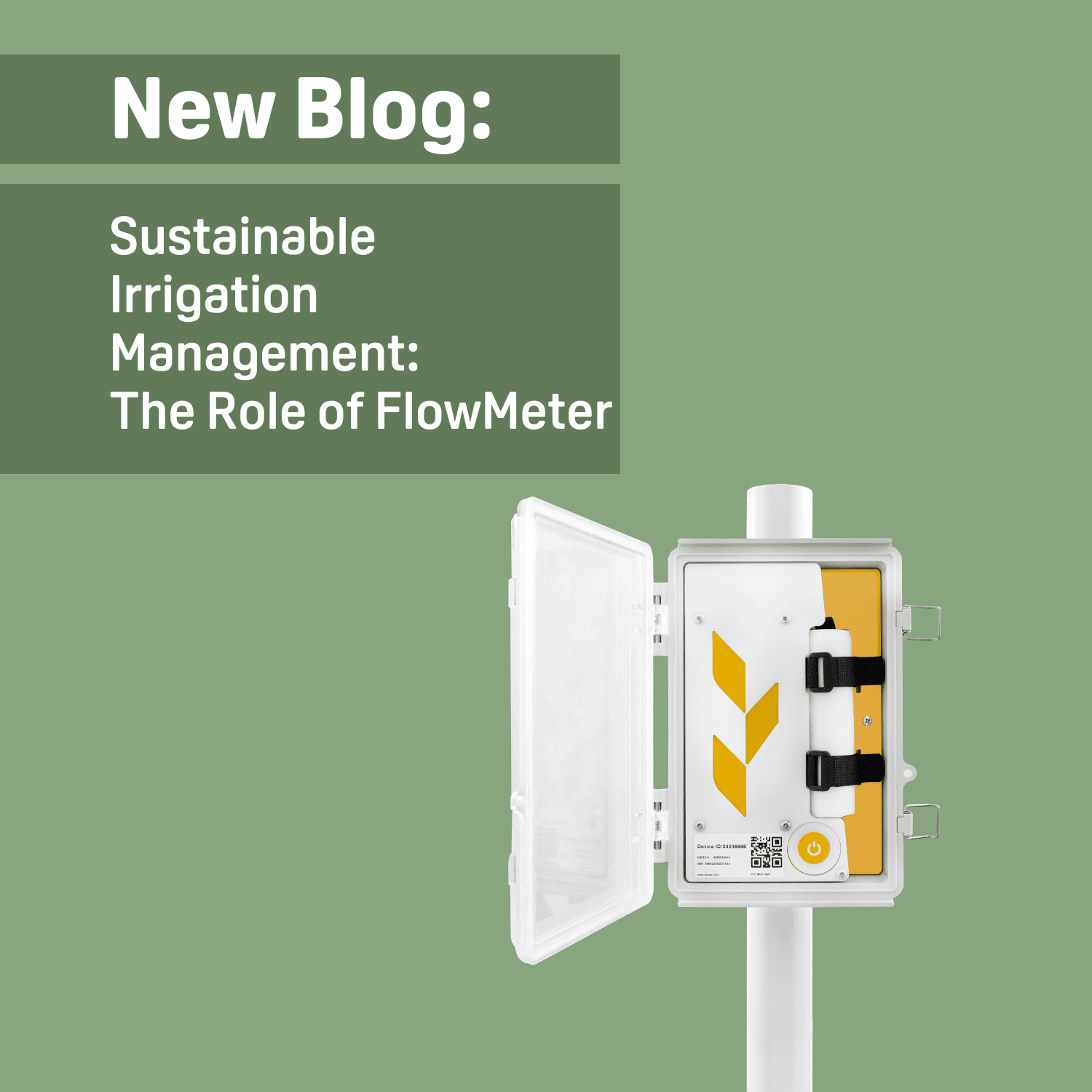

Sustainable Irrigation Management: The Role of FlowMeter
Flow meters transform irrigation by enabling precise water measurement, reducing waste, and optimizing crop yields. Tools like Doktar’s FlowMeter empower farmers to enhance water-use efficiency, conserve resources, and lower costs. By integrating flow meters into modern farming, agribusinesses achieve sustainable irrigation solutions, address environmental challenges, and ensure long-term agricultural resilience.
Published on 17 January 2025
Sustainable Irrigation Management: The Role of FlowMeter
Water is one of the most precious resources in agriculture, and its efficient use is crucial for achieving sustainability in farming. With the increasing strain on water supplies due to climate change and growing population demands, sustainable irrigation practices have become essential for agribusiness leaders and sustainability managers. Significantly advanced tools to measure water usage are indispensable for optimizing irrigation and water management. This blog explores how Doktar'sa FlowMeter plays a pivotal role in sustainable irrigation, its benefits, and the transformative impact it can have on modern agriculture practices.
Sustainable Irrigation Practices
Sustainable irrigation practices optimize water use to maintain crop productivity while minimizing environmental harm. Traditional irrigation methods often lead to significant water waste due to inefficiencies in distribution and application. These practices deplete water resources and increase farming costs, making agriculture less sustainable in the long run.
Adopting irrigation automation, flow rate monitoring, and smart irrigation solutions helps farmers manage water more effectively. Advanced tools, like FlowMeter, provide precise water usage measurements, ensuring that only the necessary amount of water reaches crops. This level of control decreases waste, enhances water-use efficiency, and promotes sustainable crop production. Furthermore, these techniques align with global efforts to conserve water and reduce the carbon footprint of agriculture operations.
Understanding Flow Meter and Its Function in Irrigation
FlowMeter measures the volume of water flowing through an irrigation system. It uses advanced flow measurement technology to provide real-time data on water usage and enables farmers to monitor and manage their irrigation systems by accurately quantifying water flow.
FlowMeter is especially advantageous for automated irrigation systems, where water distribution is electronically regulated. For instance, in a drip irrigation system, it can be installed at the main water supply to measure the total water usage; in a pivot irrigation system, flow meters can be placed at various points to monitor water distribution. Farmers can track water consumption, identify inefficiencies, incorporate a flow meter into their systems, and ensure consistent water distribution across their fields. Digital flow meters enhance functionality by offering connectivity to mobile apps and cloud platforms, allowing for remote monitoring and data analysis. This makes flow meters essential for achieving sustainable irrigation solutions.
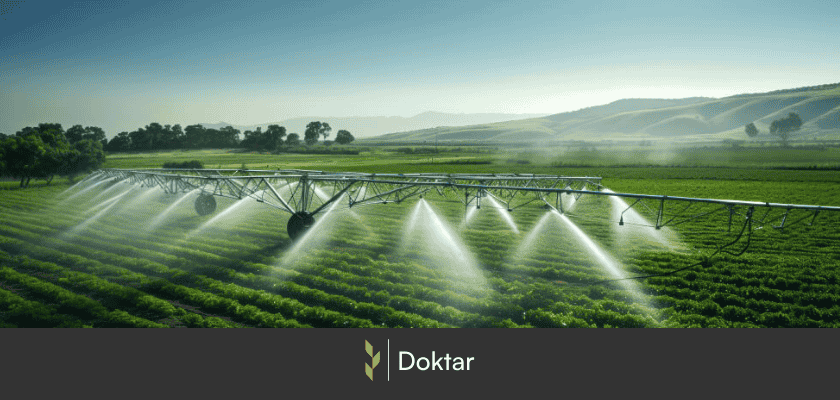
Source: Canva
Optimizing Water Usage with FlowMeter
Monitoring water flow in real time enables farmers to optimize their irrigation practices. Flow meters provide critical insights into water consumption patterns, helping identify areas of over- or under-irrigation. By addressing these issues, farmers can ensure efficient water use and maintain soil health, vital for sustainable crop production.
For instance, a farmer using a FlowMeter with soil moisture sensors can determine when and how much water is needed for a specific crop. This minimizes the risk of waterlogging or drought stress, which can adversely affect crop yields. Furthermore, the data collected by flow meter can be used to implement water conservation techniques, such as reducing irrigation frequency during rainy periods or optimizing irrigation schedules for different crop zones.
Flow meters also help reduce water waste by identifying leaks or inefficiencies in irrigation systems. For example, a sudden drop in the water flow rate recorded by a flow meter could indicate a leak in the system, prompting immediate action to prevent water loss. Early detection of these issues can save substantial water and lower operational costs. As water resources become increasingly scarce, the role of flow meters in promoting agricultural water efficiency will become increasingly important.
The Environmental and Economic Impact of FlowMeter in Farming
The use of FlowMeter goes beyond water management; it has significant environmental and economic implications. Flow meters help reduce farming operations' ecological footprint by enabling sustainable irrigation systems. Efficient water usage minimizes runoff, which often carries fertilizers and pesticides into nearby water bodies, polluting them. This supports broader environmental goals and aligns with sustainability certifications sought by agribusinesses. In terms of economics, flow meters can lead to substantial cost savings. By providing accurate data on water usage, farmers can eliminate unnecessary expenses related to overirrigation. This is especially crucial for regions with high water costs or farmers dependent on pumped water, which consumes additional energy.
Flow meters can lead to substantial economic cost savings. By providing accurate data on water usage, farmers can eliminate unnecessary expenses related to overirrigation. This is especially crucial for regions with high water costs or farmers dependent on pumped water, which consumes additional energy. Through smart farming practices that incorporate flow meters, farmers can achieve both environmental sustainability and financial viability, instilling confidence in their investment.
Furthermore, FlowMeter enhances long-term resilience by promoting better resource management. Improved irrigation water management allows farms to adapt to changing climate conditions, ensuring consistent crop yields despite water shortage and scarcity. This fosters a sense of security about your future in the face of climate change.

Source: Canva
Frequently Asked Questions
What is a flow meter?
A flow meter measures the volume of water flowing through a system. In agriculture, flow meters monitor irrigation systems and provide accurate data on water usage. Like Doktar's digital FlowMeter, advanced flow meters often feature real-time monitoring, remote access, and integration with other smart farming tools. Flow meters are critical in sustainable water management because they offer precise measurements.
What is the purpose of a flow meter in irrigation?
The primary purpose of a flow meter in irrigation is to optimize water usage. By measuring the flow rate and volume of water, flow meters assist farmers in applying the appropriate amount of water to crops. This helps prevent over-irrigation, which wastes water and harms plants, and under-irrigation, which can decrease crop yields. Flow meters also reduce water consumption and identify inefficiencies in irrigation systems, making them essential for sustainable farming.
How does a flow meter differ from other irrigation tools?
Flow meters are unique among irrigation tools because they accurately measure water usage. They track and quantify the water consumed by sprinklers and drip irrigation systems that distribute water. This functionality complements other irrigation equipment, enhancing the system's overall efficiency. Unlike basic irrigation timers, flow meters offer real-time data and allow for precise adjustments to water flow, making them essential for sustainable irrigation practices.
Can flow meters help reduce water costs in farming?
Yes, flow meters are highly effective in reducing water costs. Farmers can eliminate wasteful practices such as over-irrigation and undetected leaks by accurately tracking water usage. The insights flow meters enable better planning and resource allocation, resulting in significant cost savings. Furthermore, farmers can enhance efficiency by integrating flow meters into irrigation automation systems, ensuring that every drop of water contributes to crop production growth.
Conclusion
Flow meters are revolutionizing irrigation management by allowing accurate water measurement and control. Tools like Doktar's digital FlowMeter assist farmers in enhancing agricultural water efficiency, lowering costs, and promoting sustainable farming practices. By incorporating flow meters into modern irrigation systems, agribusinesses can reach long-term sustainability objectives while ensuring high productivity. As agriculture responds to the challenges posed by water scarcity, flow meters will continue to be a fundamental component of smart irrigation solutions, fostering innovation and resilience in farming.
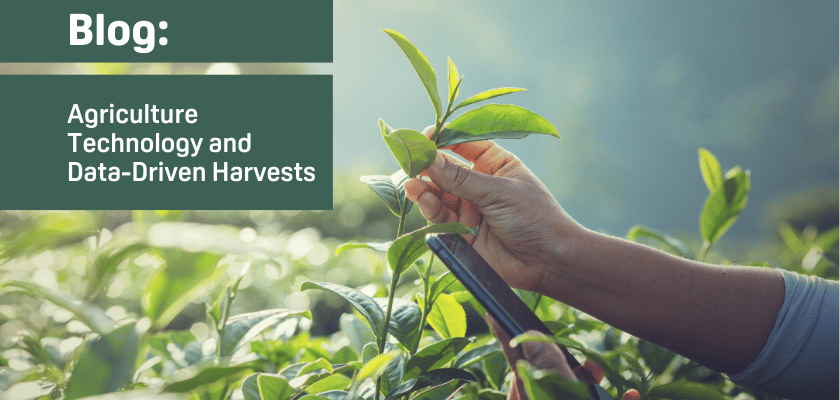
Agriculture Technology and Data-Driven Harvests
The convergence of agriculture technology and data-driven solutions represents the next frontier of innovation in farming. With companies like Doktar leading the way, farmers can leverage these advancements to improve productivity, reduce environmental impact, and secure a more sustainable future for agriculture. Whether through precision agriculture, sustainable agriculture, or cutting-edge smart agriculture technology, the future of farming is bright, and data is at the heart of this transformation. Technology's positive impact on this future should inspire and motivate us all.
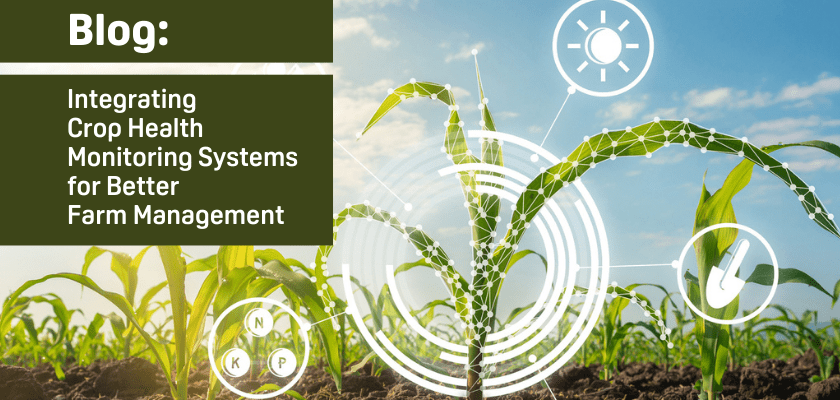
Integrating Crop Health Monitoring Systems for Better Farm Management
Crop health monitoring systems revolutionize modern agriculture by enabling real-time insights into plant health, reducing losses, and promoting sustainability. Tools like Doktar’s CropMap and Orbit integrate advanced technologies, empowering farmers with data-driven decisions. By enhancing efficiency and sustainability, these systems are essential for future-proofing agricultural operations.
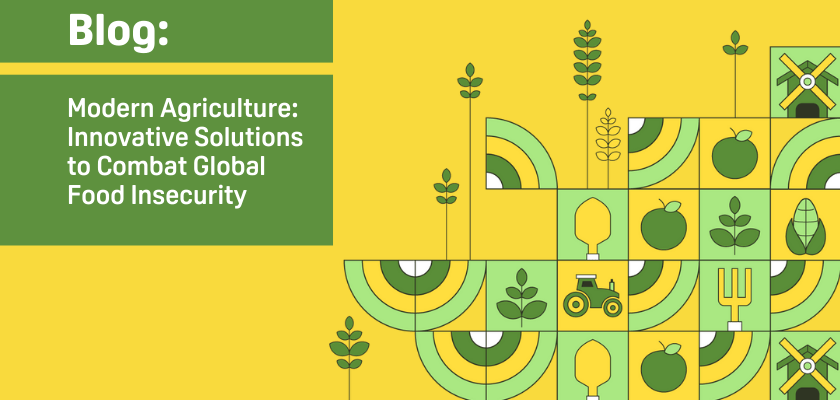
Modern Agriculture: Innovative Solutions to Combat Global Food Insecurity
Modern agriculture combats global food insecurity with precision agriculture, sustainable practices, and biotechnology. Tools like IoT, automation, and crop innovations optimize resource use, enhance resilience, and ensure stable food supplies. By integrating smart technologies, agribusinesses address challenges like climate change and resource scarcity, paving the way for a sustainable food future.
